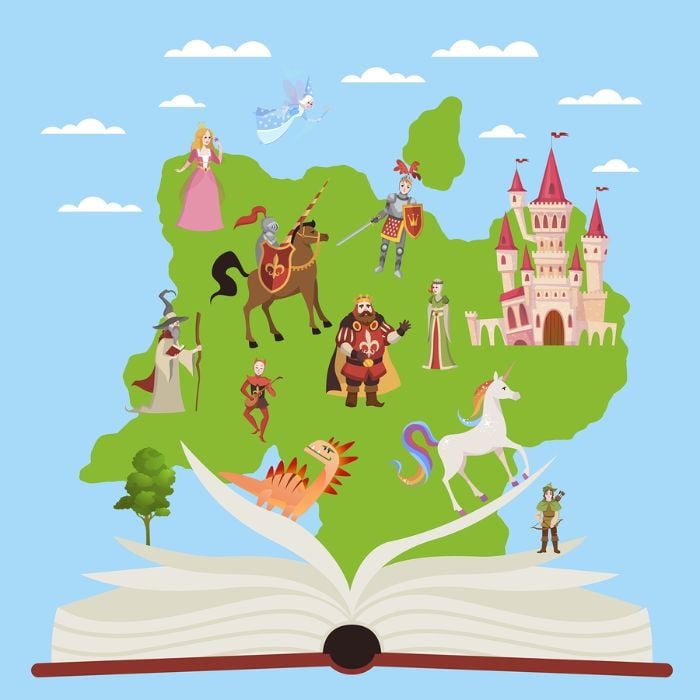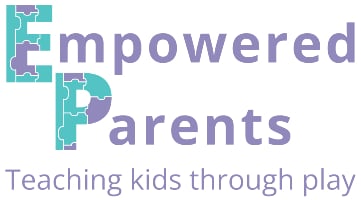There are few things more wonderful for a child than listening to a bedtime story at night, and it’s often a special time for parents too.
Reading to your children is obviously enjoyable for them and a nice way to calm them during their evening routine, but do you know just how educational and crucial this activity is?
As parents, we selflessly do so much for our children, even when we’re tired and don’t have the time or energy. Isn’t it nice to know the hours we have invested have such an incredible impact on our children’s development?
To give you some motivation for tonight’s story, here is a list of just some of the benefits of reading bedtime stories to your kids.
1. Stories Build Vocabulary
Apart from talking to your children, reading to them is the single thing that will make the biggest impact on their vocabulary.
Stories expose children to a wide range of vocabulary that covers general language as well as specific topics and genres.
According to a study called the million-word gap, there is a vast difference in vocabulary between children who are read to and children who are not exposed to books.
2. Stories Develop Creativity and Imagination
Books are able to open up a child’s world in a way that can even beat actual experiences. How often in real life can you move from the ocean to a magical tree, to an adventure island, to a different country in just a few days?

Children need to be creative and imaginative thinkers in order to succeed in this world. Reading to them is the best way to get the creative juices flowing.
Children also often incorporate what they have heard in stories into their fantasy and symbolic play. A story at night becomes a pirate adventure the next day.
3. Stories Inspire Children to Read
The best way to ensure your children will enjoy reading independently one day is to read to them when they’re little.
Children need to see behaviour modelled and if they never see their parents read a book to them – or read one themselves – they are less likely to find the activity attractive.
Reading is a vital skill that will set your children up throughout their years at school and into adulthood.
Read your kids these poems about books and stories that are sure to inspire them.
4. Listening to Stories Helps Children Learn to Write
Learning to write creatively is a skill that starts with listening to stories.

When children have a lot of exposure to imaginative stories during the early years they are more likely to become creative writers during the formal schooling years.
Creative writing is not an easy task and must be built and encouraged slowly. The best foundation you can give your kids is to surround them with rich language from an early age.
5. Children Learn Rhyme and Rhythm While Listening
Read a good story by amazing authors like Dr Seuss or Julia Donaldson and they will often be filled with rhyming words and will have a rhythm to them when being read aloud.
This is not done just for fun. These authors know that listening to these kinds of stories will train children to hear sounds in words, learn to identify rhyming words and learn about rhythm and syllables in words.
Why are these things important? Because they are pre-reading skills that children must learn during the preschool years before they start learning to read formally.
Rhyming words, for example, teach children to hear sound combinations at the ends of words. Later, children will also learn to hear sounds in the beginning and middle of words – a skill necessary when learning to decode words when reading.
These 4 rhyming fairy tale poems are a real treat.
6. Children Acquire Knowledge Through Stories
Humans learn when they are interested in something and motivated to learn it. Take any lesson and turn it into a story or interactive activity and you’re bound to get the message across much quicker than standing up and “teaching” in the traditional sense.
Stories are the perfect way for your child to build a huge bank of knowledge on a wide range of topics.
Non-fiction books can be highly educational but so can fiction books. Children won’t even realize how many new concepts and ideas they’re learning because they will merely be having fun and listening to hear what happens next.
7. Storytime Builds Listening Skills
During my time teaching in the classroom, the most important yet often lacking skill was the ability to listen. By listen I don’t mean obey, I mean actually being able to listen for information and interpret what is being heard.

Listening skills are important for understanding instructions, following during lessons, comprehending and interpreting information, and learning to differentiate between sounds – which is a vital pre-reading skill.
Listening is a life skill that can be developed at bedtime and will last a lifetime
8. Concentration Spans Increase While Listening
Small children need to build their attention span over time so that they are able to focus for appropriate lengths of time when at school.
The best way to do this is to engage kids in activities that make them concentrate and hold their attention for a while. Stories are perfect for this because few children would be satisfied to stop a story halfway and not find out how it ends.
This often pushes children to sit a little longer than normal and pay attention.
Watching television for hours might seem like concentrating but it’s a highly passive activity. A bedtime story, on the other hand, requires a child to listen actively.
9. Stories Expose Children to Values and Morals
Most children’s stories are built around messages – of kindness, tolerance, cooperation, consideration, strength of character, perseverance and determination, belief in yourself, empathy, respect and more.
Books are a great way to teach your child values in a relatable and age-appropriate way.
Read your kids these short stories with morals.
10. The Characters Model Problem Solving
Every good story is filled with problems and challenges just waiting to be resolved. The characters in the stories are often faced with difficult situations that they must navigate and find solutions to.
Problem solving is a vital skill for children as well as adults. Children are exposed to problems in their everyday lives – how to build a ramp for their construction, how to resolve a conflict with a friend, and how to get the water-sand ratio correct so that the mud pie stays intact.
They need to learn the skill of problem-solving by practising regularly through playing, watching adults solve problems and listening to stories.
Read these four cute funny stories to your children to discover how the animals problem solve.
11. Listening is Relaxing and Stress-Relieving
Bedtime stories are a wonderful way to relieve tension and unwind. They really are the perfect ending to a busy day, not to mention an incredible bonding experience for children and parents.
I hope you’ve enjoyed reading about reading! These are just a few examples of the many benefits.
Download the Free Activity Pack to receive 8 fun short stories that are printable!

